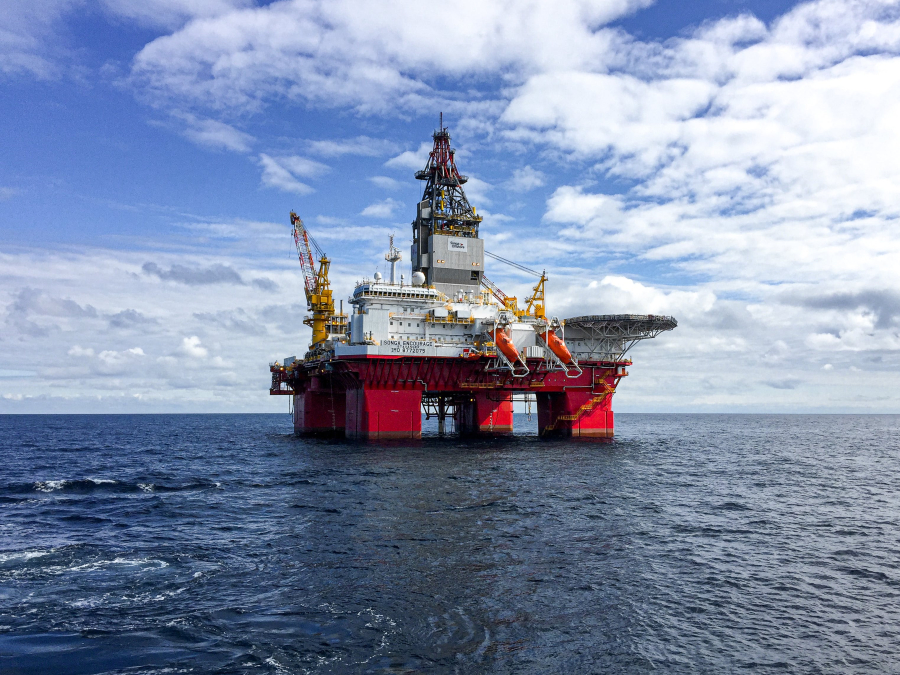Mechanical Engineering Technology professor Weihang Zhu has now started the second phase of a collaborative offshore safety-focused effort with the American Bureau of Shipping, funded by the Gulf Research Program (GRP) and directed by Kevin McSweeney at Lamar University.
The project is a collaboration between three entities – the American Bureau of Shipping, the University of Houston and Lamar University. A total amount of $724,512 was awarded to the two-year project, "Using Safety Culture Assessment Data to Enhance Safety and Environmental Management System Effectiveness."
As a subcontractor, Zhu will use $200,000 of the award to better understand the close-knit relationship between an organization's safety culture and its Safety and Environmental Management System (SEMS).
The Bureau of Safety and Environmental Enforcement (BSEE) defines "safety culture" as "the core values and behaviors of all members of an organization that reflect a commitment to conduct business in a manner that protects people and the environment."
Factors that contribute to an organization's safety culture include their leadership team's commitment to safety, personal accountability, effective communication in a respectful work environment, and hazard identification and risk management.
Identifying the motivation behind each decision made by an employee in safety-related situations – whether that might be time, cost or one of many other potential perceived incentives – allows leadership, stakeholders and researchers to better understand and address potential dangers.
This makes understanding why employees fail to adhere to certain safety guidelines over time just as important, if not more so, than simply identifying those unmet guidelines. This paradigm applies to everything from serious accidents to near-miss situations that had the potential to become serious accidents under different circumstances.
"Safety and Environmental Management Systems (SEMS) help companies to keep track of those so-called near miss events," Zhu said. "A near miss is a situation that almost turned into an accident but didn't. Companies like to keep track of those. We want to see how we can improve these systems, and the way we approach that is investigating and leveraging safety culture. We can use what we observe and learn to make recommendations on how companies should proceed in their future safety practices."
Though the physical risks may exist in the form of vehicles, machinery and other mechanical components, the human component of the safety equation requires more abstract investigation. Identifying the root cause of a near miss, safety and environmental issue or other similar concern allows stakeholders to address dangers from the ground up, beginning with employees. Their actions, decisions and concerns contribute to the overall safety culture of the organization.
"This work with the Gulf Research Program about safety culture in the offshore industry is actually the second phase of my collaboration with the American Bureau of Shipping," Zhu said. "[In the first project phase], our target was to develop our comprehensive toolkit for assessing the safety cultures on offshore oil platforms as well as their company support staff on the shore side. We developed a set of tools to assess the safety culture, including the safety culture survey and interview as well as incident review and leading safety indicators. We spent three years developing that toolkit, and it's now the basis for our current project."
In the first phase of this project, researchers were unable to test the toolkit they created with any of their participating companies or stakeholders. This was due in part to the restrictions and operating limitations of the early pandemic era. Now that things are beginning to reshape, Zhu is eager to get local operators involved in hands-on field testing of the safety toolkit.
"We are hoping that in this second part of the project, we'll be able to reach out to offshore companies and get this toolkit in use. This will allow us to assess whether our kit is effective, whether it's useful to the company, and if there are any qualities we can improve," Zhu said.
